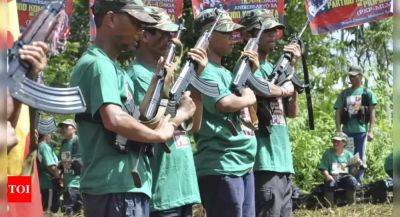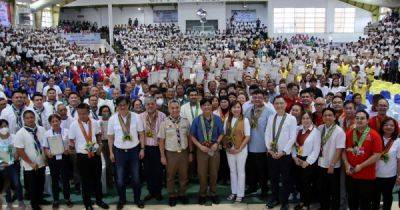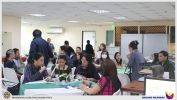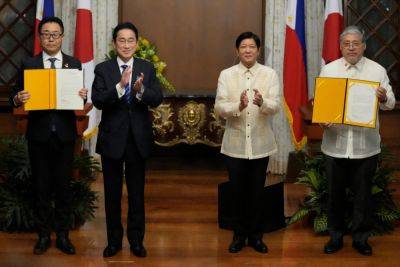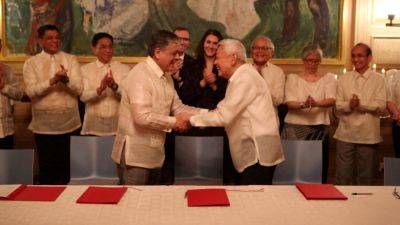Philippine government and communist rebels agree to resume talks on ending their armed conflict
COPENHAGEN, Denmark (AP) — The Philippine government and the country’s communist rebels have agreed to resume talks aimed at ending decades of armed conflict, one of Asia’s longest, Norwegian mediators announced Tuesday.
High-ranking delegations from both sides met in the Norwegian capital of Oslo last week and agreed to a “common vision for peace” that sought to address key obstacles, according to Norway’s foreign ministry.
Norwegian Foreign Minister Espen Barth Eide said the deal was signed at “an important signing ceremony” on Thursday but was only made public on Tuesday.
Since 1969, the Communist Party of the Philippines and its armed wing, the New People’s Army, have fought successive Philippine governments. The rebellion, which opposes the Philippines’ close ties with the United States and wants left-wing parties to be part of the government, has left about 40,000 combatants and civilians dead.
The fighting has also stunted economic development in the impoverished countryside. The military says a few thousand Maoist insurgents continue to wage the insurgency to this day.
Past administrations had engaged in intermittent peace negotiations with the rebels. Former President Rodrigo Duterte ended peace talks in March 2019, accusing the rebels of attacks on police and military outposts. The U.S., the European Union and the Philippine government consider the New People’s Army a terrorist organization because of its attacks targeting civilians.
Last year, Ferdinand Marcos Jr. took office as the new president and appeared more open to peace talks. He granted amnesty last week to several insurgent groups, including the NPA, for offenses including rebellion, sedition and illegal assembly, but not those suspected of kidnapping, killing, terrorism or similar serious crimes.
Marcos’ namesake father declared martial law in the Philippines in 1972, imprisoning thousands of suspected rebels and communist supporters, until he was ousted in a 1986 popular uprising.
The Philippine government and the National Democratic Front of the Philippines, the umbrella group representing the rebels, said in their joint statement that they “recognize the need to unite as a nation in


